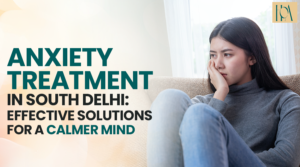Greetings from House of Aesthetics, where we prioritize not only outer but also inner beauty.! Join me, Dr. Ashish Bansal, a dedicated psychiatrist, as we delve into the critical topic of Digital Detox. Today, let’s embark on a journey to understand the significance of Digital Detox in nurturing our mental well-being.
Why Digital Detox Matters?
In today’s landscape, the omnipresence of social media has surged, posing potential threats to our mental health. The increasing prevalence of social media platforms has been associated with reduced productivity, time wastage, online bullying, and a surge in insecurities.
Understanding Digital Detox: A Path to Reclaim Control
Digital Detox isn’t merely a trend; it’s a conscious decision to disconnect from electronic devices and step away from social media to foster a healthier relationship with technology. It’s about regaining control over our lives in a digitally cluttered world.
Preparation for Digital Detox: A Gradual Approach
Transitioning into a Digital Detox involves a step-by-step process:
- Start with gradual breaks: Allocate specific times for complete disengagement from devices or social media.
- Establish boundaries: Designate device-free times or create zones in your environment where phones aren’t allowed.
- Encourage alternative activities: Invest time in hobbies, physical exercise, and quality moments with loved ones.
- Utilize supportive tools: Employ app blockers or set timers to limit screen time effectively.
Recognizing Signs That Call for a Digital Detox
Identifying signs is pivotal:
- Excessive preoccupation with social media: Constantly checking notifications, likes, or comments.
- Decline in productivity: Difficulty concentrating on tasks due to excessive social media use.
- Neglected real-life relationships: Prioritizing virtual interactions over spending quality time with loved ones.
- Negative impact on mental health: Experiencing feelings of anxiety, envy, depression, or inadequacy post-social media use.
- Disrupted sleep patterns: Struggling to sleep due to device usage before bedtime.
The Mental Health Toll of Excessive Digital Engagement
Protracted digital exposure is linked to various mental health concerns, including heightened anxiety, sleep disturbances such as insomnia, increased substance use, exacerbation of depression symptoms, and a higher likelihood of relapse in individuals with pre-existing mental illnesses. Addressing these issues requires a mindful approach to our digital habits and understanding when a digital detox is essential for mental well-being.
A Personal Insight: Balancing Screens in a Digital World
As a psychiatrist, managing prolonged screen time is inevitable. However, I’ve incorporated small practices into my routine—like taking short breaks, stretching intermittently—to mitigate the impact of extended screen use. These micro-breaks rejuvenate me and offer respite amidst a screen-centric profession.
Understanding Technostress and the Essence of Digital Detox
Technostress encompasses any negative impact caused by technology. A Digital Detox isn’t just about periodic disconnection; it involves strategies to reduce engagement with Information Technology (IT), effectively combating technostress.
Conclusion: Taking the First Step towards Wellness
In conclusion, amidst our digitally-driven lives, recognizing the necessity for a Digital Detox is the first step toward fostering mental wellness. By implementing small changes and being mindful of our digital habits, we can proactively safeguard our mental health, reclaim balance, and thrive in both our digital and real-life experiences.
Join me in taking that first step towards a healthier digital life—let’s unlock mental wellness together!





